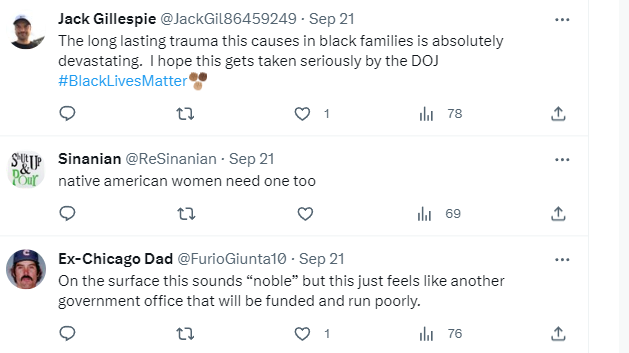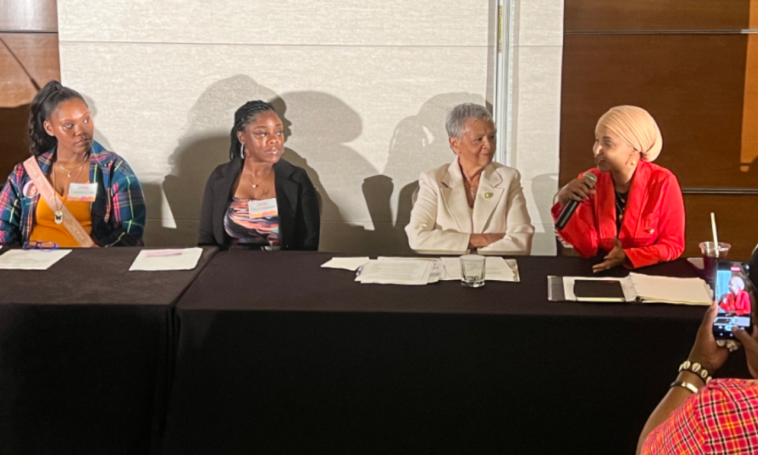Inspired by a Minnesota measure approved earlier this year, the Brittany Clardy Missing and Murdered Black Women and Girls Act is named after an 18-year-old Minneapolis woman who disappeared in 2013 and was discovered dead.
According to a 2020 National Crime Information Center survey, 15% of women were black, while 34% were missing.
“My message with this bill is to provide hope,” Rep. Omar told media before submitting it Wednesday night at the 52nd Annual Legislative Conference of the Congressional Black Caucus Foundation in Washington, D.C.
“To give hope that [the victims’] loved ones’ stories will inspire legislation to prevent other families and survivors from suffering.”
A task group led by Clardy’s sister Lakeisha Lee opened the Minnesota office. “All the hard work and sacrifices I’ve made for my family and connecting with other families was worth it,” Lee told VICE News.

We and other families and communities can restart with this action. Just blueprint. That requires seeing, listening, and loving black women and girls.”
Clardy was found dead in her vehicle trunk two weeks later. Lee and her family, like many Black female families, complained that police took too long to react to their missing report.
The Clardy Act cites the Convention on the Elimination of Racial Discrimination, which states that Black girls and women cases last four times longer.
The proposed federal position requires local community participation, focus groups, and interviews with Black women and girls who have lived experience. It emphasizes data collecting to develop a missing case monitoring and reporting system.
The measure recognizes that existing missing person initiatives don’t address Black women’s issues.

It states that “the existing federal resources dedicated to combating violence against women and girls is not enough to address this problem and additional resources must be targeted directly to protecting, supporting and providing justice to Black women and girls in the United States”.
If passed, the office would be led by an Attorney General-appointed director who would establish a national advisory commission and coordinate with state and local agencies to collect data on cases nationwide, such as their resolution rate and length of stay compared to similar issues in other demographics.

The measure also requires data collection on Amber warnings and missing reports labelled as runaways. It is a response to families’ complaints that police sometimes discount their loved ones’ disappearances as runaway cases, which get less attention.
The Clardy Act also funds community organizer grants for police, attorney, and judge training and victim assistance.
“Our communities are in crisis and we can’t wait for action,” Omar added. “Black women deserve to walk freely without harm.”



